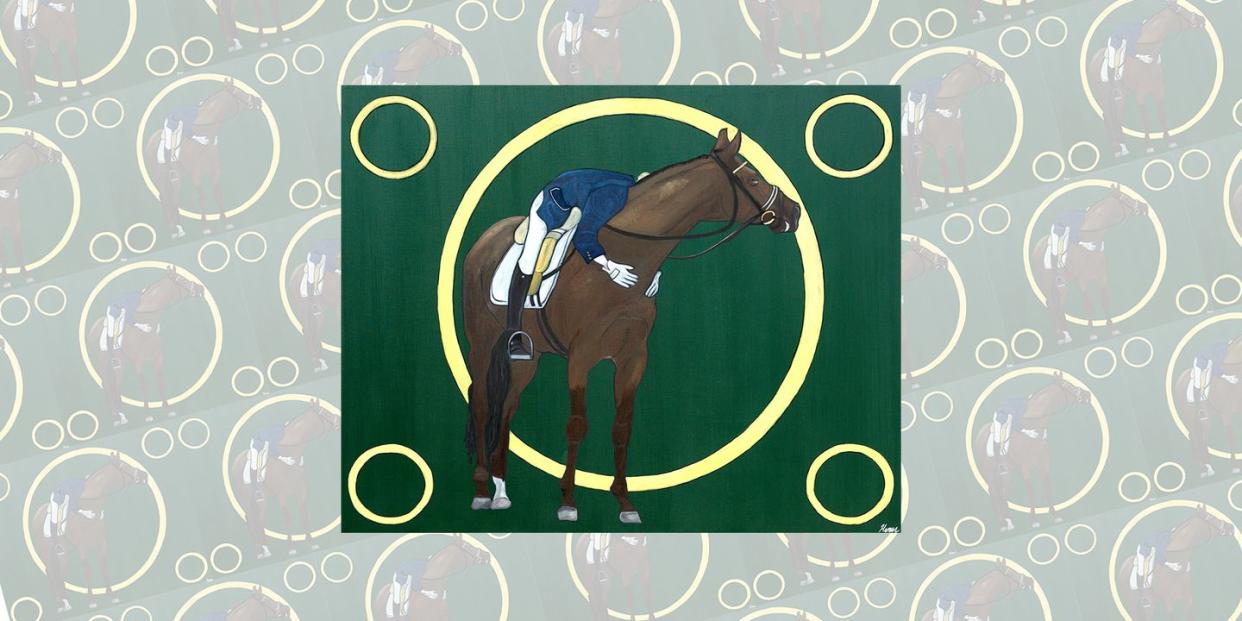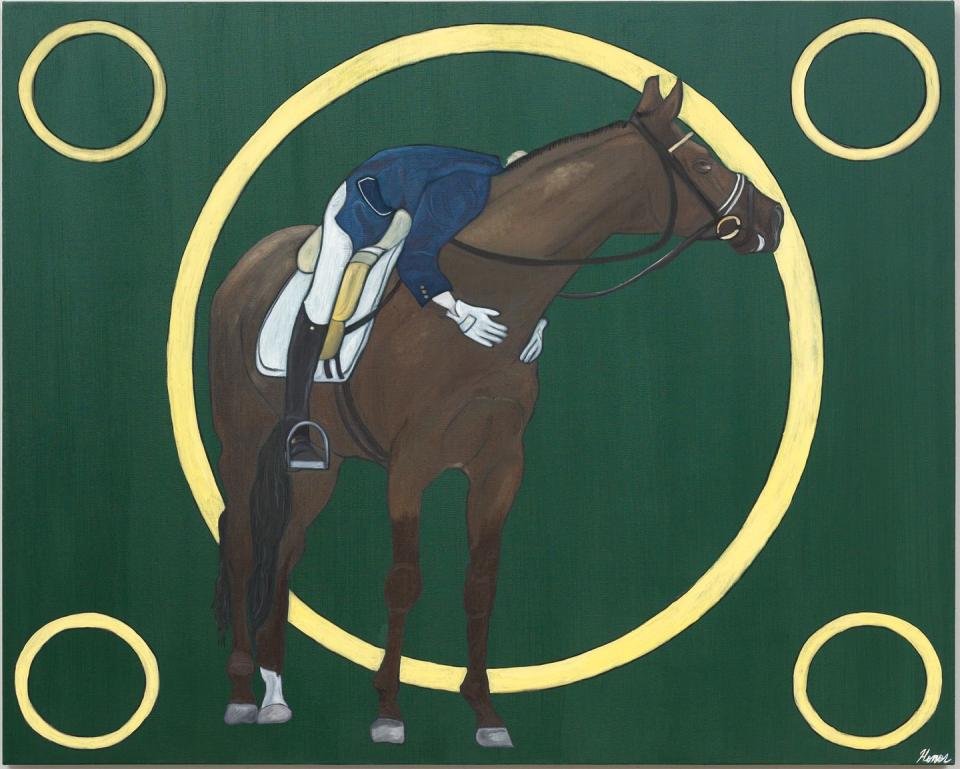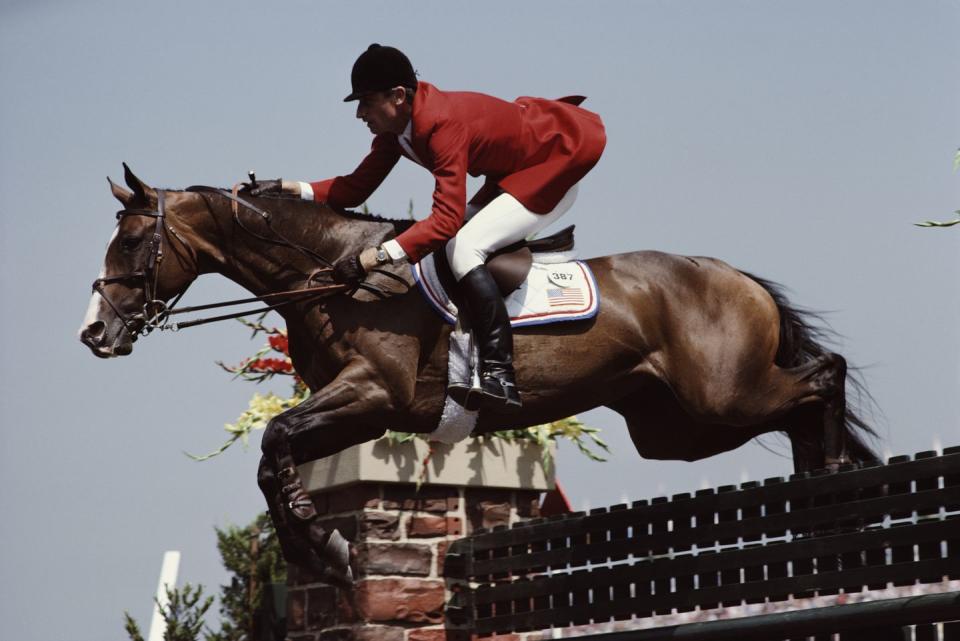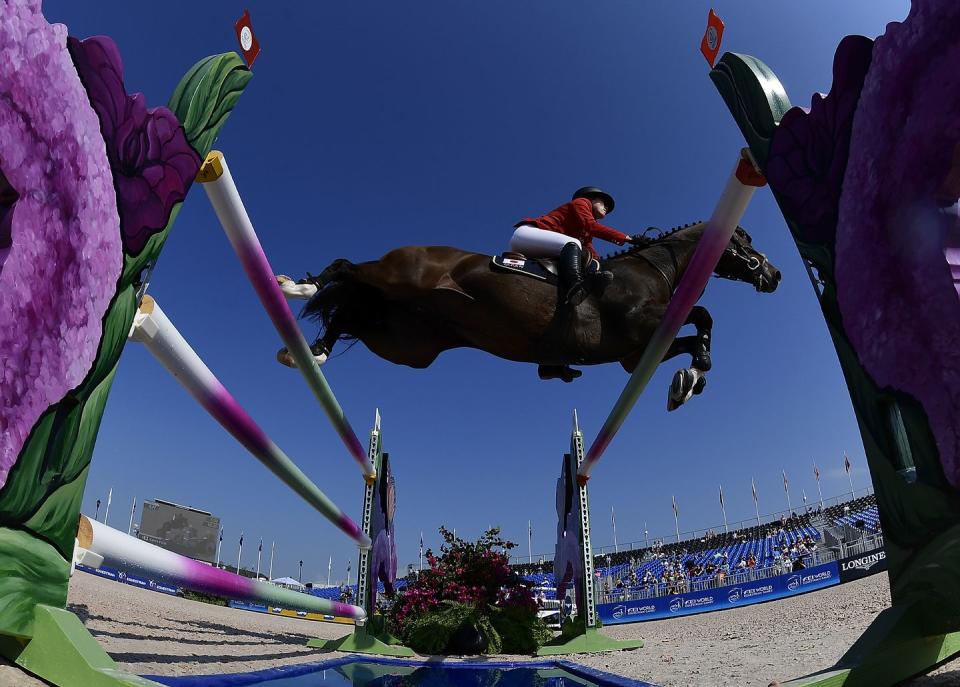A Meditation on Hope and Olympic Dreams

- Oops!Something went wrong.Please try again later.

The most exhilarating moment in Olympic equestrian history, for the U.S. anyway, has to be the 1984 summer games in Los Angeles. The Americans, flush with both human and equine talent, brought the “Dream Team” to the show jumping competition, posting unprecedented double clear rounds and the lowest total number of faults since show jumping became an Olympic sport, in 1912. They not only took home the team gold medal for the first time but also the individual gold (Joe Fargis) and the silver (Conrad Homfeld).
Fargis and his mount, Touch of Class, an American thoroughbred affectionately known as Kitty around the barn, were an unlikely pair. An imposing six-foot-two, Fargis is quiet and reserved. Kitty was a little pistol, and her diminutive height invited skepticism as to her ability to clear the obstacles that course designer—and the team’s legendary former coach—Bertalan de Némethy put in her path. The stands at Santa Anita Park held nearly 16,000 spectators. As Fargis and Kitty navigated the final combination of fences, it was so quiet you could hear, if not a pin drop, at least a lone voice shouting from the crowd, “Go, Joe!” Afterward, Fargis, with characteristic self-effacement, gave Kitty all the credit: “The horse went perfectly. I didn’t mess up. It was great.”

The Olympics have a way of absorbing the state of the world and reflecting it back to us on a human scale. Each athlete has a unique story. We find, in their triumphs and setbacks, metaphors for life: We raise the bar, cross the finish line, keep our eye on the ball.
This time around, the world has a collective story, too, and 2021 may go down as the year that all of us got back on the horse. After the agony of the pandemic, the thrill of the games, expected to kick off this July in Tokyo, will be in the hard-won victory of showing up, the pure joy of being able to play.
Equestrian Karen Polle, an Hermès Partner Rider, has had her sights on the Tokyo games since 2014, when she started competing for Japan. (Though she was raised in New York, she was born in Tokyo and holds dual citizenship.) Last spring she and With Wings, her horse of more than a decade, were the favorites for the Japanese team. Then Covid hit, and the games were postponed. And then Wings turned 18. When countries make their final team selections this June, Wings won’t be among them—Polle has decided to pull Wings from the rigors of competitive training. (Lucy Deslauriers, another Hermès Partner Rider, has been shortlisted by Team USA. See below.)
Upon hearing that heartbreaking piece of news, I recalled a conversation I had with Polle in the spring of 2020, when fear and uncertainty were at their highest and competitions were temporarily suspended. She was, to use another horse metaphor, taking it all in stride.
“When I was riding this morning, I was thinking about how when I first started, I don’t think I even knew it was a competitive sport,” Polle told me. “This break is taking me back to a time when there was no goal. It was just about enjoying myself and enjoying the horses.”

That hasn’t changed. She still rides Wings every day. While there are countless show jumping competitions—such as the glamorous Saut Hermès and the star-studded Hampton Classic—the Olympics still remain the Dream. For Polle to sacrifice that Dream of competing together for the sake of her partner is the very definition of good horsemanship. “Sometimes when I’m walking the course, I have this surreal moment when I ask myself, How can horses actually jump this big?” Polle confessed. “The power you feel when they push off the ground and the way they use their bodies to stretch over the fence—that’s the best feeling for me.”
Not too long ago Polle posted a compilation video of Wings on Instagram. He has a famously big personality and, characteristically, he is creating a spectacle of himself in the footage. He bucks (and bucks, and bucks again for good measure). He rears. He spins in circles as if he were at a rodeo and not a world class grand prix. Through it all, Polle hangs tight, occasionally with her arms around his neck, and always with a huge smile on her face.
Rider and trainer Bill Steinkraus competed in five Olympics and rode for the U.S. for 22 years. In 1984 he was in the commentator’s booth with ABC’s Chris Schenkel. When Fargis stepped into the canter for his winning jump-off round, Steinkraus excused himself, saying that he was going to be watching with so much interest he didn’t think he would be able to talk. He was, no doubt, remembering his own gold medal win in Mexico City, in 1968. But one imagines that wasn’t the only sentiment behind this moment of silent awe.
“We must never forget, every time we sit on a horse, what an extraordinary privilege it is: to be able to unite one’s body with that of another sentient being, one that is stronger, faster, and more agile by far than we are, and at the same time brave, generous, and uncommonly forgiving,” Steinkraus wrote in his seminal book, Reflections on Riding and Jumping. “Only as riders can we achieve some measure of eternal youth, since we can exchange old, tired bodies for younger, more vigorous ones as easily as changing horses. The horse doesn’t know or care if you are a prince or a pauper, only whether you can ride with skill and justness.”
This story appears in the Summer 2021 issue of Town & Country. SUBSCRIBE NOW
You Might Also Like

